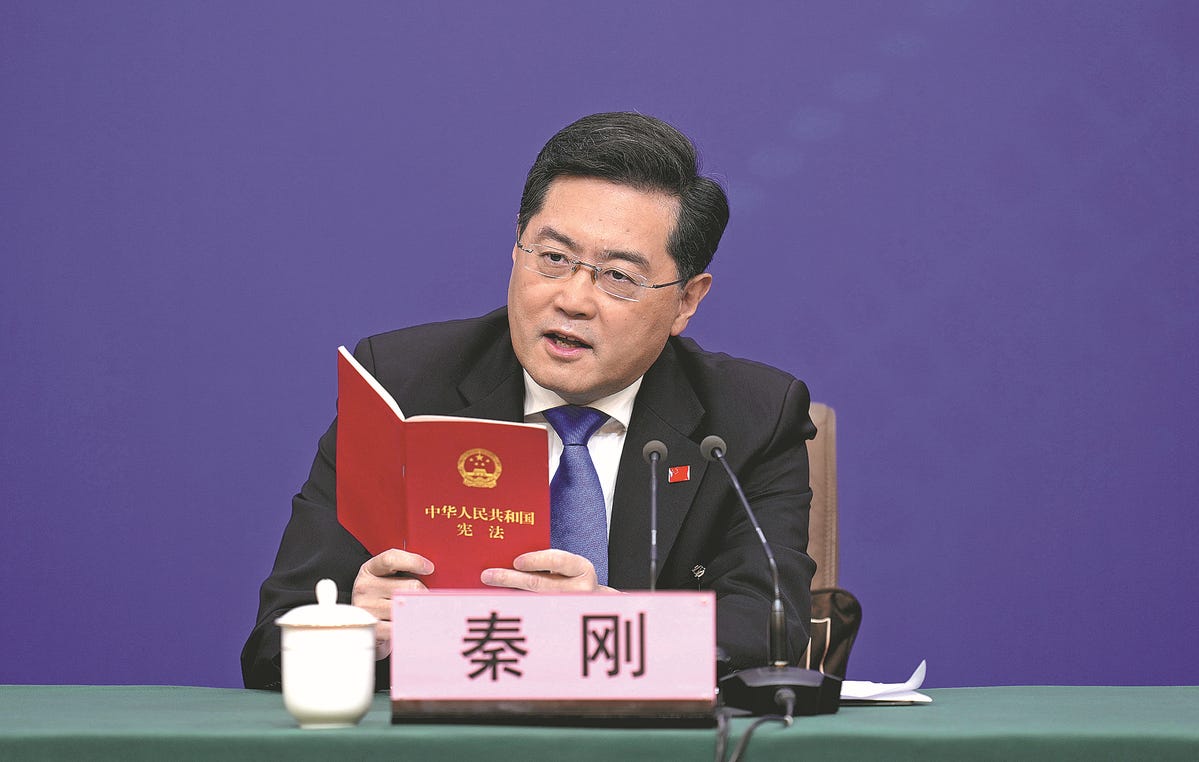February 2024: First NPC Report on Chinese-Style Constitutional Enforcement
Plus: China's state secrets law revised for the first time in almost 15 years.
Welcome back to NPC Observer Monthly, a (mostly) monthly newsletter about China’s national legislature: the National People’s Congress (NPC) and its Standing Committee (NPCSC).
I’m interrupting our NPC Week™️ programming to recap last month’s NPC-related news. This issue will be brief as it was a quieter month at the legislature, and I’ve been quite busy with its ongoing annual session. For our coverage of the 2024 NPC session, please head over to our main site, where we maintain an up-to-date daily schedule of the session and, as of today, have uploaded all key reports submitted to the NPC.
If you’re enjoying the newsletter, I hope you’ll consider sharing it. —Changhao
News of the Month
On February 21, the Ministry of Justice, the National Development and Reform Commission, and the NPCSC Legislative Affairs Commission jointly held a symposium to hear the views of the “representatives of private entrepreneurs” as well as experts and scholars on enacting a Private Economy Promotion Law [民营经济促进法]. Officials from China’s top judicial authorities and the All-China Federation of Industry and Commerce were also in attendance. The Minister of Justice announced at the event that the drafting process had already begun—and, according to the NPCSC’s latest work report (zh | en), it could come before the legislature later this year. Two delegate bills from 2023 may have contributed to the fast-tracking of this legislation.
On February 23, the legislature released the first-ever annual report on its efforts to enforce the Constitution in 2023. As I wrote in my detailed breakdown of the report:
The report is worth reading for it not only discloses new constitutional practices from the past year that may have escaped most people’s attention, but also catalogs the kinds of activities that officially constitute “constitutional enforcement.” The report also likely serves as the basis for the section in the NPCSC’s forthcoming 2024 work report on constitutional enforcement.
According to the report, the NPC and its Standing Committee carried out constitutional enforcement last year in five main ways: through (1) legislation; (2) personnel and organizational actions; (3) constitutional review and interpretation; (4) oversight; and (5) propaganda and theoretical research.
The section on (3) is the most interesting and important, in my view, so I translated it in full in my write-up, with annotations. Among other things, this section provides the first detailed official account of the process for ex ante review of national laws and discloses a few examples of the process in action.

On February 26–27, the 14th NPCSC met for its eighth session, which was convened by the Council of Chairpersons on February 7. The session focused on preparing for the ongoing NPC session, but also took two actions of note.
First, in announcing the latest changes in NPC membership, the NPCSC disclosed that Qin Gang, China’s former foreign minister, had resigned from the top legislature as a delegate (presumably in January or early February).
Second, the NPCSC adopted a revised Law on Guarding State Secrets [保守国家秘密法], which will take effect on May 1, 2024. My colleague Jeremy Daum has an excellent post on China Law Translate that introduces key changes to the original Law and offers an informed, thoughtful take on the contentious new “work secrets” [工作秘密] provision that has received the most attention. The revised Law has been translated here, and comparison charts (zh | en) are available as well.
That’s all for this month’s issue. Thanks for reading!
I’ll be back in your inbox soon after the NPC’s 2024 session wraps up next Monday. Until then!

